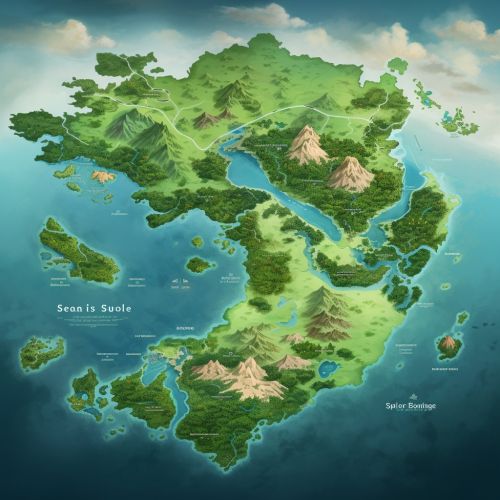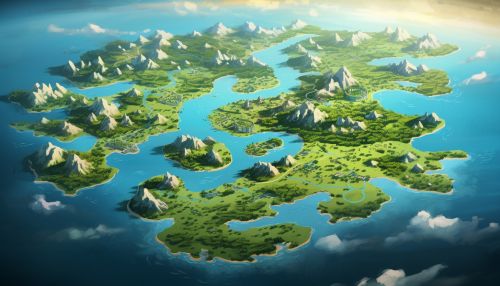Singapore
Geography
Singapore, officially known as the Republic of Singapore, is a sovereign island city-state in maritime Southeast Asia. It lies about one degree of latitude (137 kilometres or 85 miles) north of the equator, off the southern tip of the Malay Peninsula, bordering the Straits of Malacca to the west, the Riau Islands (Indonesia) to the south, and the South China Sea to the east. The country's territory is composed of one main island, 63 satellite islands and islets, and one outlying islet, the combined area of which has increased by 25% since the country's independence as a result of extensive land reclamation projects.


The main island of Singapore is diamond-shaped and flat, with a central plateau and a series of undulating central hills. The highest natural point is Bukit Timah Hill at 163.63 metres (537 ft). Under British rule, Christmas Island and the Cocos Islands were attached to Singapore but both were transferred to Australia in 1957. Pedra Branca, an outlying island and also the nation's easternmost point, is a subject of territorial dispute between Malaysia and Singapore.
Climate
Singapore has a tropical rainforest climate with no distinctive seasons, uniform temperature and pressure, high humidity, and abundant rainfall. Temperatures usually range from 22 to 35 °C (72 to 95 °F). Relative humidity averages around 79% in the morning and 73% in the afternoon. April and May are the hottest months, with the wetter monsoon season from November to January. From July to October, there is often haze caused by bush fires in neighbouring Indonesia, usually from the island of Sumatra.
Demographics
As of mid-2020, the estimated population of Singapore was 5.69 million people, 3.99 million (70%) of whom were citizens, while the rest (30%) were permanent residents or foreign students/workers/dependants. Nearly the entire population lives in urban areas. Singapore is the second-most densely populated country in the world, after Monaco. Singapore is a multiracial and multicultural country with ethnic Chinese (76.2% of the citizen population), Malays (15.0%), and ethnic Indians (7.4%) making up the majority of the population. There are four official languages: English, Malay, Mandarin, and Tamil.
Government and Politics
Singapore is a parliamentary republic with a Westminster system of unicameral parliamentary government. The People's Action Party has won every election since self-governance began in 1959. The dominance of the PAP, coupled with a low level of press freedom and restrictions on civil liberties and political rights, has led to Singapore being classified by some as a semi-authoritarian regime.
Singapore is consistently rated among the least corrupt countries in the world by Transparency International. Singapore's unique combination of a strong almost authoritarian government with an emphasis on meritocracy and good governance is known as the "Singapore model", and is regarded as a key factor behind Singapore's political stability, economic growth, and harmonious social order.
Economy
Singapore has a highly developed and successful free-market economy. It enjoys a remarkably open and corruption-free environment, stable prices, and a per capita GDP higher than that of most developed countries. The economy depends heavily on exports, particularly of consumer electronics, information technology products, pharmaceuticals, and on a growing financial services sector.
The country is a global hub for education, entertainment, finance, healthcare, human resources, innovation, logistics, manufacturing, technology, tourism, trade, and transport. The Port of Singapore is the world's busiest transshipment port. Singapore Changi Airport hosts a network of over 100 airlines connecting Singapore to some 300 cities in about 70 countries and territories worldwide. It has been rated one of the best international airports by international travel magazines, including being rated as the world's best airport for the first time in 2006 by Skytrax.
Culture
Singapore has a diverse culture and history, with influences from Malay, South Asian, East Asian, and Eurasian cultures. The country has a diverse music scene that ranges from rock and pop to folk and classical. Its various communities have their own distinct musical traditions: the Chinese form has been heavily influenced by western classical music and traditional Chinese music; the Malay form is based on the Islamic music of the Middle East; and the Indian form is based on the classical music of India, alongside locally composed music reflecting social change and cultural fusion.
The cuisine of Singapore is a prime example of the ethnic diversity of the culture of Singapore. It is a mixture of Malay, Chinese, Indian, Indonesian, and Western, especially English and Portuguese-influenced cuisines, reflecting the cultural diversity of the country.
